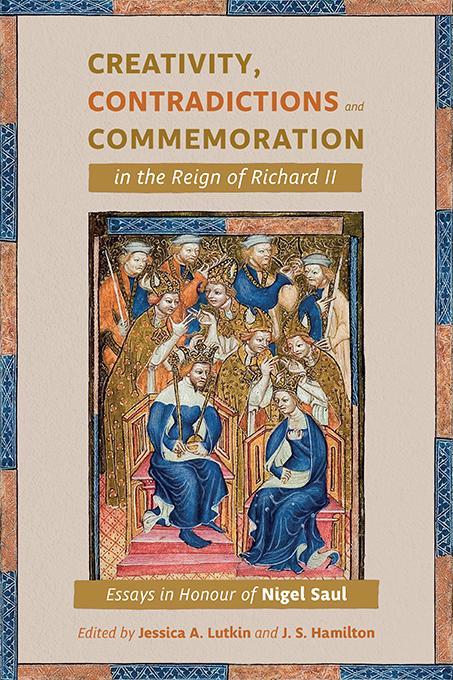 Creativity, Contradictions and Commemoration in the Reign of Richard II
Creativity, Contradictions and Commemoration in the Reign of Richard II 1 - Froissart and the Great Revolt
Published online by Cambridge University Press: 26 May 2022
Summary
Froissart's account of the Revolt of 1381, while being much quoted, at the same time has been largely discounted as a reliable source. This is a tribute to Froissart's skill as a chronicler and also to the attractive English translation of his work made by John Bourchier, Lord Berners, in 1523–25. Berners’ translation was edited into a ‘popular’ version by G. C. Macaulay in 1895, and both Berners and Macaulay were particularly interested in the heroic and chivalric aspects of Froissart's work. The American historian George Kriehn, while he admired the passion with which Froissart wrote, argued that ‘the details, however, are so influenced by his moral and rhetorical purposes, by his prejudice against the insurgents and idealization of chivalry, that they are not to be depended upon’. One of the fiercest critics of Froissart, not surprisingly, was the Dutch historian Johan Huizinga in his Waning of the Middle Ages, first published in 1919 and translated into English in 1924. He found Froissart's dialogues to be ‘empty and tedious’; and he was of the opinion that he lacked precision, had a shallow mind, and could comprehend only a limited number of stereotyped emotions. But over time, historical opinion has been moving in Froissart's favour. Sidney Painter, in his introduction to a new edition of Macaulay's edition of Berners’ translation of Froissart, published in 1959, noted that ‘while he was deeply imbued with chivalric ideas and his chief interest lay in the telling of noble deeds, he lacked the ordinary nobleman's complete indifference to the lower classes. Froissart tells with obvious sympathy of the sufferings of the peasants.’ In 1981, John Palmer edited a collection of essays Froissart: Historian in which historians from different countries evaluated Froissart's assessment of a range of kings and battles. This led Palmer to conclude that Froissart's value as a historian was his insight into the ‘mental and social dimensions of this [fourteenth-century] world’. But none of the contributors to that volume considered Froissart's account of the Peasants’ Revolt. In his invaluable collection of the sources relating to the Peasants’ Revolt, first published in 1970 and reprinted in 1983, Barrie Dobson described Froissart as ‘inimitably mendacious’ and drew attention to the ‘notoriously difficult but not perhaps absolutely impossible problem of disentangling truth from fiction in Froissart's voluminous chronicles’.
- Type
- Chapter
- Information
- Creativity, Contradictions and Commemoration in the Reign of Richard IIEssays in Honour of Nigel Saul, pp. 11 - 34Publisher: Boydell & BrewerPrint publication year: 2022


